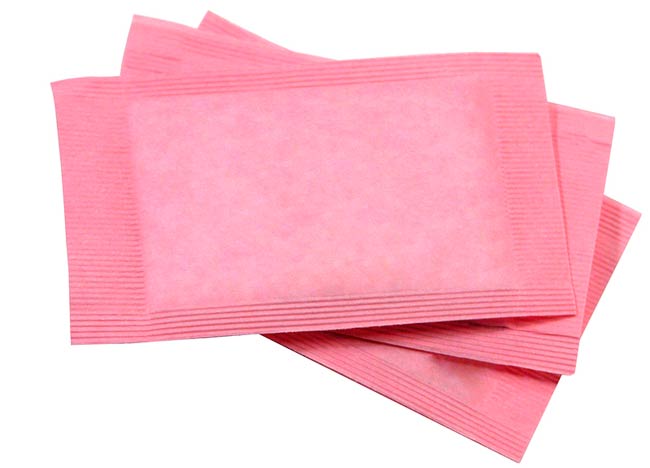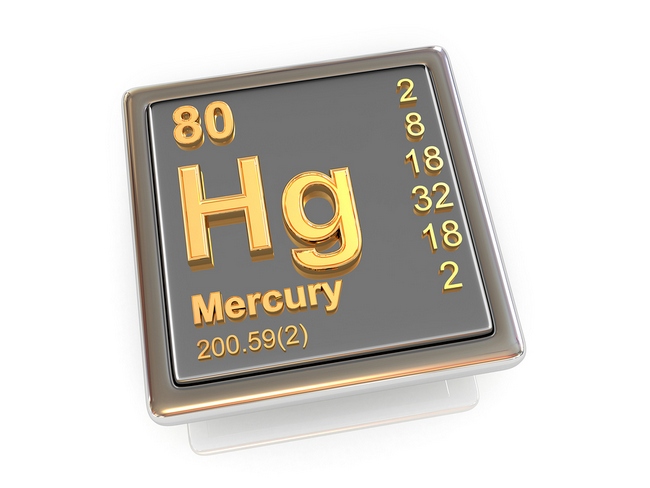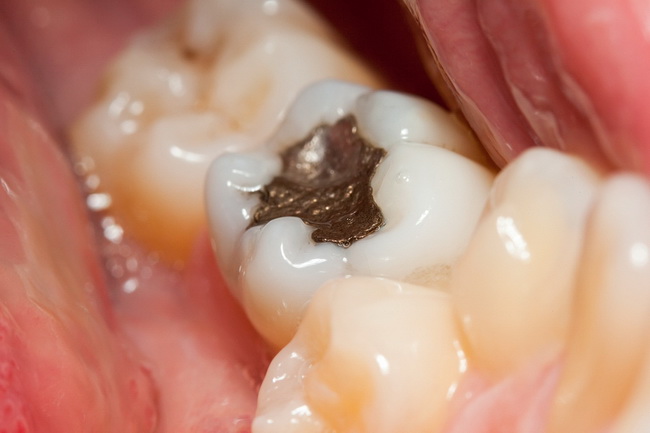- Make It Yourself Lavender Heart-Shaped Bath Bombs!
- 20 Things You Never Knew About “Down There”
- 12 Best Foods For Those Suffering From Arthritis Pain
- 12 Personal Hygiene Mistakes Almost Everyone Makes (Mom Never Told You About #4!)
- 15 Medicinal Plants And Herbs From The Cherokee People
- 12 Mind-Blowing Benefits Of Drinking Coconut Water During Pregnancy
- 12 Outstanding Winter Foods That Won’t Fatten You Up Like A Christmas Turkey
10 of the Most Disgusting Things You Never Knew about This One Habit

Photo credit: bigstock.com
Iran and Saudi Arabia are two of the biggest countries when it comes to chewing gum. Why is this? Because many stores do not have small change, so they pass out the equivalent in chewing gum. However, America is right behind them, with almost 60 percent of the population stating that they chew gum at least a few times per week.
Most people chew gum as a distraction, something to do while you are waiting in line, or for stress relief, or just to freshen their breath. Some people even claim that chewing gum stops their cravings for sugar or junk food.
However, if you are a regular gum chewer, there are a few things you should know about this habit and some of those things aren’t exactly pretty. In fact, you will find some of these facts are downright disgusting, while others are like playing with fire, as far as your health goes.
Before you open that giant 30 pack of minty fresh gum, check out these 10 facts about chewing gum. Be sure you spit that gum out before you read this list though, otherwise, you might just choke on it!
1. Digestive Problems
Have you noticed that you always seem to have some type of unexplained digestive problem? Maybe it’s gas or perhaps you burp all the time. Maybe you have diarrhea or just general stomach pain. Your problem might be your gum habit. When you chew gum, you swallow excess air, which can cause bloating, gas, and burping. Some people think they have irritable bowel syndrome, when all they really have is a gum problem. By chewing gum you are sending your body signals that you are about swallow food, so your stomach activates enzymes and acids to prepare for food but, of course, it doesn’t come. This can cause stomach pain due to an overproduction of stomach acid and can actually compromise your ability to produce enough stomach acid when you do eat food. In a nutshell, your body doesn’t understand why you are chewing but it’s not getting any food.
2. Sheep Byproducts
It’s true! Chewing gum contains something called lanolin, a waxy substance that comes from sheep wool. It helps gum to stay soft. You have probably seen this ingredient in your hand lotion or cleaning products. Although it’s not known to be exactly harmful, the ick factor is pretty high.
Continue to Page 2

Photo credit: bigstock.com
3. The Artificial Sweetener Factor
Many people believe that the ingredients in their gum don’t really matter because they don’t swallow it, but nothing could be further from the truth. These ingredients are absorbed directly into your body through the lining of your mouth and go into the bloodstream in a matter of minutes. In some ways, chewing gum is worse because at least if you swallowed some of these ingredients the acid in your stomach would help to kill or filter some of these things but with chewing gum, everything is going right into your blood.
One of the main chemicals you are absorbing are the artificial sweeteners in most gums. The most common one being aspartame. Once metabolized in your body, it changes into formaldehyde (yeah, the same stuff they use to embalm people) and wood alcohol (which is poisonous in sufficient quantities). Aspartame is not filtered out of your body like other toxins and has been linked to numerous health problems including brain tumors, cancer, birth defects, and weight gain.
Sucralose (Splenda) is another common sweetener. This chemical sweetener was approved by the FDA after only two studies, one of which was a mere 4 days in duration! The FDA did not seem to care that studies on animals showed that this toxic chemical was linked to decreased red blood cells, enlarged kidneys, male infertility, spontaneous abortions, and a much higher death rate.
Although sugar is also bad for your body, it’s certainly preferable to these killer artificial sweeteners! If you absolutely must chew gum, stick with the kind that contains natural cane sugar and be certain to brush your teeth afterwards.
4. It Can Trigger TMJ
Constant chewing can cause an imbalance in the muscles of the jaw, especially if you tend to chew more on one side of your mouth than the other. This can lead to a serious jaw problem called temporomandibular joint disorder, or TMJ. This is a terribly painful and chronic condition for which there is very little that can be done other than to be fitted with an appliance you must wear every night so that you don’t grind your teeth together due to muscle spasms. Those appliances look something like braces that hold your mouth open while you sleep. Sexy, right?
5. Headaches
Especially for teenagers, chewing gum often leads to chronic headaches, although it can happen to adults as well.
A study that used 30 daily gum chewers between the ages of 6 and 19 and measured the amount of headaches they felt during a 30 day period. The subjects were then instructed to stop chewing gum during the following month. 19 of the 30 subjects had their headaches disappear entirely, while another 7 had a drastic reduction in the frequency and severity of their headaches. Twenty six of these subjects returned to daily gum chewing and all stated that their headaches returned immediately. Scientists believe these headaches could be caused by a type of gum-induced TMJ or a tightening of the muscles in the head, neck, and jaw. It was also speculated that some of these headaches were due to the artificial sweeteners or other chemicals found in most chewing gum.
Continue to Page 3

Photo credit: bigstock.com
6. The Release of Mercury
If you have any silver colored fillings in your teeth, this means that they contain mercury. You should be aware that every time you chomp on that stick of gum, you are releasing mercury into your bloodstream. Mercury is a neurotoxin which can cause serious health problems. Every time you chew, mercury vapor is being released into your bloodstream, where it causes an oxidative process in every cell in your body. If you still have silver fillings, you should have them removed and replaced as quickly as possible and absolutely do not chew gum until you have these fillings replaced.
7. Dangerous and Gross Ingredients
OK, so we already talked about formaldehyde, wood alcohol, and lanolin from sheep’s wool, but those gross ingredients are just the tip of the iceberg. Although ingredients vary from brand to brand and even between flavors, let’s take a look at the top ingredients that are in many popular brands and flavors that can cause serious health problems, or are just plain disgusting.
- Gum Base – Although manufacturers will rarely tell you what that “gum base” actually is, research shows that it is mainly a mixture of resins, plasticizers, elastomers, petroleum-based wax, carpenter’s glue (polyvinyl acetate) and talc. Nothing sounds yummier than a nice stick of wax and glue flavored plastic, now does it? By the way, most of these chemicals have strong links to the development of cancer.
- Titanium Dioxide – This is used as a whitening agent, but has been linked to Crohn’s disease, asthma, and autoimmune problems. One study found that many children are exposed to high levels of this chemical through gum and candy, with gum having the highest levels.
- BHT (Butylated Hydroxytoluene) – This is a highly toxic preservative that is banned in many other countries as it has been linked to organ toxicity, which includes liver and kidney damage, hyperactivity in young children, and possibly even cancer.
- Calcium Casein Peptone (Calcium Phosphate) – Unfortunately, people read the word “calcium” in an ingredient and think that this means it’s a good thing, but this time around, this ingredient is anything but! This is used as a texturizer and whitening agent. Although it is a milk derivative, it is highly processed and almost nothing is known about its long term use, although this chemical was linked to baby formula poisonings in China and it is a well-known trigger of autoimmune problems.
- Phenylalanine – Have you ever picked up a pack of gum and see a warning on the label, that it contains this ingredient? Have you ever wondered what that was and why you were being warned about it? Phenylalanine is added to aspartame and it requires a warning label because if you have certain health conditions, it can be downright dangerous. This ingredient can cause brain seizures, anxiety or panic attacks, sleep problems, and even mental retardation in some persons. How nice! Have a little brain seizure with that stick of gum, ma’am?
- Artificial Colors and Flavors – All of these artificial colors and flavors have been linked to so many health problems; it would be hard to list them all here. These cause everything from cancer to seizures, asthma to hyperactivity, insomnia to brain fog.
8. Induces Cravings
Although some people think that they are curbing their cravings for junk food or fast foods or sugary foods by chomping on a stick of gum instead, studies show that this simply isn’t the case. Research has shown that although chewing gum does reduce your motivation to eat, but those who chew gum end up eating unhealthy foods more often than those who don’t chew gum. They also end up consuming more calories than non-gum chewers. This study showed that those who chewed gum ate fewer fruits and vegetables and were instead eating more junk foods like potato chips, candy, and sodas. This is probably because that minty fresh flavor in most gums makes fruits and veggies taste rather bitter.
Continue to Page 4

Photo credit: bigstock.com
9. Tooth Decay (even with sugarless gum)
You probably already know that chewing regular gum that contains sugar is like giving your teeth a constant sugar bath, which can cause cavities if you don’t brush as soon as you have finished your gum. However, even those who choose those sugar free gums still risk damage to their teeth because these chewing gums still have acidic flavorings and other ingredients, such as preservatives, that erode the tooth surface. Dental erosion caused by these ingredients is a process of decalcification of the tooth, which over time, is literally dissolving your teeth bit by bit. How attractive that sounds.
SEE ALSO: Make Your Own Gummy Chews that Beat the Flu
10. It Doesn’t Really Give You Minty Fresh Breath
Although when you first pop that stick of gum into your mouth, it really does feel and taste fresh, but you should know that you really aren’t making your breath fresher, you are only covering it up. This is sort of the same reason why people started putting flowers on coffins, to hide the smell. Using chewing gum for better smelling breath only covers up the smell, but it doesn’t really address the cause. Bad breath usually comes from poor dental hygiene, decaying teeth, or digestive problems, all of which are problems you should take care of, not cover up.
If all of this sounds pretty disgusting and unhealthy, you are right. Although some people find kicking the gum habit difficult, it’s not nearly as hard as quitting smoking.
Instead of gum, try fennel seeds. Fennel seeds are nothing new and they have been used in many parts of the world for hundreds of years to improve digestion, stop heart burn and indigestion, and freshen your breath naturally. These are sold almost everywhere and you can keep a small bottle in your purse or pocket. Chewing just a small amount (about ½ a teaspoon) after a meal (you swallow these seeds, unlike gum) will make your mouth feel fresh and clean and improve your digestion, unlike gum.
Fennel seeds can be the answer you are looking for. Try reaching for them instead of a stick of that gross gum. Your body and your teeth will thank you!
References:
































